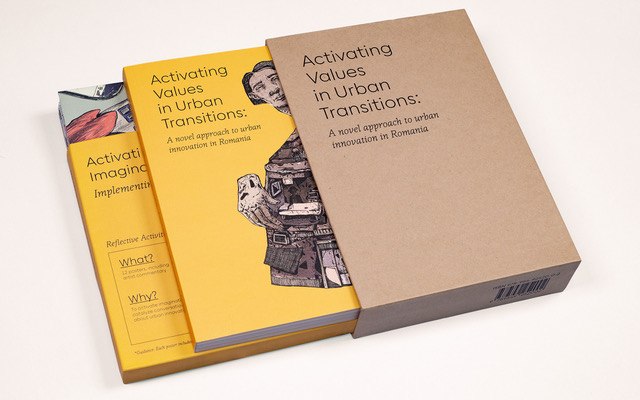New study examines the benefits of prioritizing well-being over economic growth in urban innovation
Foregrounding values of care and trust is essential
World Urban Forum in Katowice, Poland, June 29, 2022
Today, SDG CoLab, a non-profit arm of GD, together with the Engagement Lab @Emerson College, the Massachusetts Institute of Technology, and the ArtiVistory Collective, with funding from Fondation Botnar, have released the new study “Activating Values in Urban Transitions: A novel approach to urban innovation in Romania.”
The study finds that the explicit articulation of values of care and trust is essential for creating and sustaining local innovation ecosystems in the Eastern European context. It details how the foregrounding of these values is accomplished, and it provides design recommendations for other cities interested in reproducing the model in the pursuit of just transitions and well-being.
Published during the World Urban Forum (WUF11), the premier global conference of sustainable urbanization taking place in Katowice, Poland, the research examines the innovation culture in Cluj-Napoca, Romania, a vibrant and rapidly growing intermediary city in Eastern Europe.
The study documents the co-creation of OurCluj, a multi-sectoral, multi-disciplinary living laboratory focused on well-being. Traditionally, living laboratories are innovation clusters, housed within city government, that seek to address policy issues such as housing, education, etc. OurCluj is different because its goal is not progress on a single policy, but on the values that guide innovation itself. Prioritizing these values is a requirement for creating policies and programs that are optimized for outcomes such as enhanced well-being of the city’s young residents.
As the study describes, such novel arrangement is called a “Values-Based Urban Living Laboratory” or VBULL. It comprises three primary activities that drive values-forward innovation: imagining futures, reconciling the past, and sharing power. The research unpacks each of these activities and examines how they contribute to urban innovation culture that is both unique to the Eastern European context and potentially applicable to cities in other regions. The study concludes with 10 design recommendations for practitioners to catalyze VBULL in their spaces. It is complemented with a reflective activity with full-colored artistic posters to imagine alternative frames for urban innovation and communities.
At the recent launch of the study in Cluj-Napoca Mayor Emil Boc remarked: “This contribution is an excellent and visionary work; it is offering us light in some aspects we need and it is going to be part of the city strategy.”
Susanna Hausmann, Fondation Botnar’s Chief Program Officer, said: “The values are the pillars for building resilient cities and societies where the citizens, including young people, can experience well-being.”
The research was led by Prof. Eric Gordon, Emerson College and the Massachusetts Institute of Technology, in collaboration with Barbara Bulc, primary steward of OurCluj and founder of SDG CoLab. Visual art plays a central role in the study, not just as visualization, but as a part of the methodology. Each interview was conducted by a researcher, with a team of artists documenting the affective dimensions of the conversation. Follow-up interviews asked people to reflect on the visual representations, effectively uncovering the emotional dimensions of innovation. The publication was designed by Studio Punkt.
This study is a timely contribution to the central theme of WUF 11, Transforming Our Cities for a Better Urban Future. It highlights the role of intermediary cities, which are today at the forefront of forging transformative pathways in post COVID-19 recovery, when nearly every assumption about urban growth is being questioned. The research supports the Fondation Botnar’s OurCity initiative in several intermediary cities accros Europe, Africa, Latin America and Asia.
#####
Read more and download the book: www.ourcluj.city
About partners:
PHOTO GALLERY
